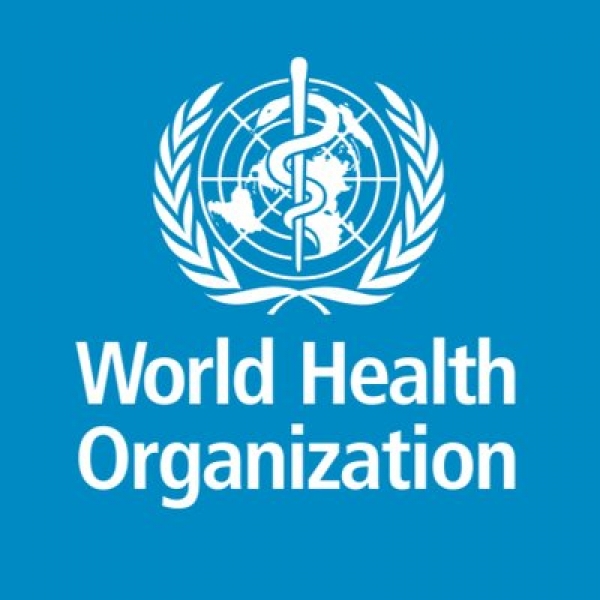WHO | Where does the WHO get its funding from?
Up till 31st January, the US still hasn’t paid their dues for the year 2019 or for the year 2020, which amounts to approximately $200 million. The share of t
- by aditi verma 2020-04-12 05:19:42
US President Donald Trump in one instant threatened to put a hold on the money spent to the WHO and in another, said that he is not going to do it but will look at it. When it comes to the pandemic, the WHO has been too "China-centric", although this charge has been completely denied by the UN body.
On 3rd February 2020, the director-general of WHO, Tedros Adhanom Ghebreyesus criticized the travel ban imposed by Donald Trump on all the passengers who are coming from China.
The United States is the largest contributor to the World Health Organization, with a share of 22 percent. India's share is approx 0.8341 percent. The WHO is dependent on two types of funding including assessed contributions from its member nations and the voluntary contributions.
The share of the US is a part of the assessed contributions. The assessed contributions are similar to a membership fee which is calculated on the basis of a country's wealth and their population. It is payable on 1st January each year.
Up till 31st January, the US still hasn’t paid their dues for the year 2019 or for the year 2020, which amounts to approximately $200 million.
The share of the analyzed contributions in the annual budget of WHO has been declining over the years to such an extent that now these are only 24 percent. The rest of the shares are made through the voluntary contributions from the member nations as well as several private organizations including the Bill & Melinda Gates Foundation, Universities and the other UN bodies such as UNICEF and UNDP.
For the year 2018, out of the total voluntary contributions of about $2.24 billion, the United States' share was a little more than $281 million, or 12.5 percent. This was down by 30 percent from the year 2017. The Gates Foundation was the second-largest contributor in the year 2018, with its share being over $229 million. This was followed by the UK contributing $205 million.
If Donald Trump does act on the decision to block the United States' contribution this may even result in the WHO to suspend the country’s voting rights and deny access to its services. This can be done by the WHO as per Article 7 of its Constitution.
The WHO and its Director-General especially, have received a lot of criticism from the world for simply underestimating the coronavirus outbreak during its initial stages, as in 2020, the WHO made a tweet saying, there was no human-to-human transmission of the coronavirus. This was said even though one day before, a case was detected outside China, in Thailand.
WHO was founded on 7th April 1948. This day is now celebrated every year as World Health Day. The WHO has over 7,000 persons working in its 150 country offices, six regional offices and at their headquarters located in Geneva, Switzerland.
The WHO and how it is governed:
The World Health Assembly (that includes delegations from all of the member countries) has the authority to determine all the policies of the organization. The executive board comprises members who are technically qualified in health and gives effect to the decisions and policies of the health assembly.
The major function is of directing and coordinating international health work through their collaboration. WHO partners with several establishments including countries, the United Nations system, international organizations, civil society, foundations, academia, and the research institutions.
The Contingency fund for emergency situations:
The Contingency Fund for Emergencies (CFE) allows the World Health Organization to respond to any disease outbreaks as well as health emergencies as rapidly as possible. The CFE is not earmarked, hence giving the WHO the crucial flexibility that it needs to take immediate actions in response to the disease outbreaks, natural disasters, and humanitarian emergencies.
PC: The Sentinel
Read More: Top MNC Companies In India | Top 10 MNC in India
POPULAR POSTS
Loan EMIs to Drop as RBI Slashes Repo Rate - Full MPC December 2025 Highlights
by Shan, 2025-12-05 11:49:44
Zoho Mail vs Gmail (2025): Which Email Platform Is Best for Businesses, Startups, and Students?
by Shan, 2025-10-09 12:17:26
PM Modi Launches GST Bachat Utsav: Lower Taxes, More Savings for Every Indian Household
by Shan, 2025-09-24 12:20:59
$100K H-1B Visa Fee Explained: Trump’s New Rule, Clarifications & Impact on Indian Tech Workers
by Shan, 2025-09-22 10:11:03
India-US Trade Deal Soon? Chief US Negotiator Arrives in Delhi as Talks Set to Begin Tomorrow
by Shan, 2025-09-15 11:54:28
Modi Meets Xi: Trump’s Tariffs, Strategic Autonomy, and the Future of Asia’s Power Balance
by Shan, 2025-09-03 06:40:06
Google Claims Gemini AI Uses Just ‘Five Drops of Water’ Per Prompt, Sparks Debate
by Shan, 2025-08-22 12:34:27
RECENTLY PUBLISHED

Pine Labs IPO 2025: Listing Date, Grey Market Premium, and Expert Outlook
- by Shan, 2025-11-05 09:57:07

The Agentic Revolution: Why Salesforce Is Betting Its Future on AI Agents
- by Shan, 2025-11-05 10:29:23

Top 10 Insurance Companies in India 2026: Life, Health, and General Insurance Leaders Explained
- by Shan, 2025-10-30 10:06:42

OpenAI Offers ChatGPT Go Free in India: What’s Behind This Big AI Giveaway?
- by Shan, 2025-10-28 12:19:11

Best Silver Investment Platforms for 2025: From CFDs to Digital Vaults Explained
- by Shan, 2025-10-23 12:22:46





 Subscribe now
Subscribe now 